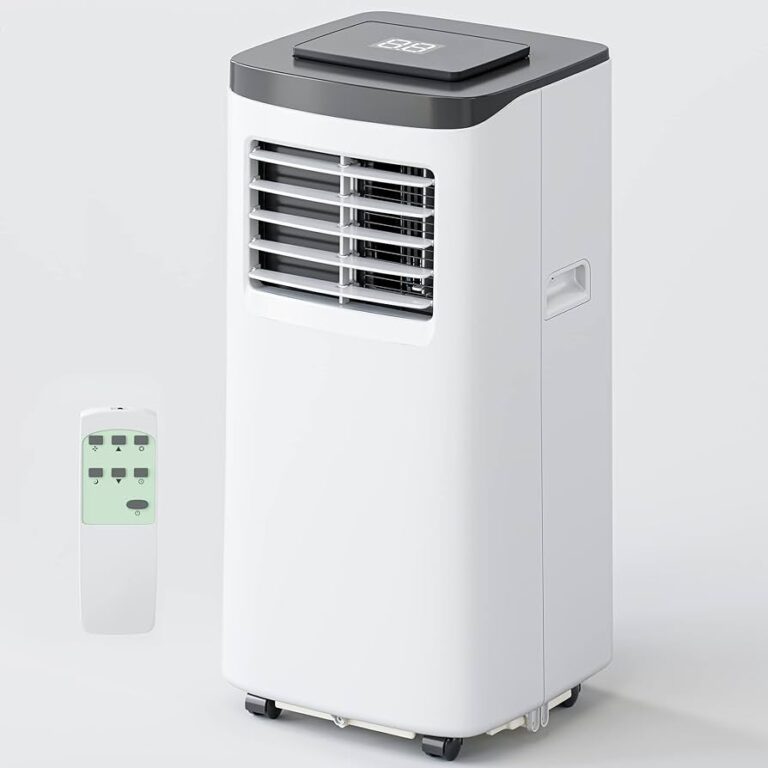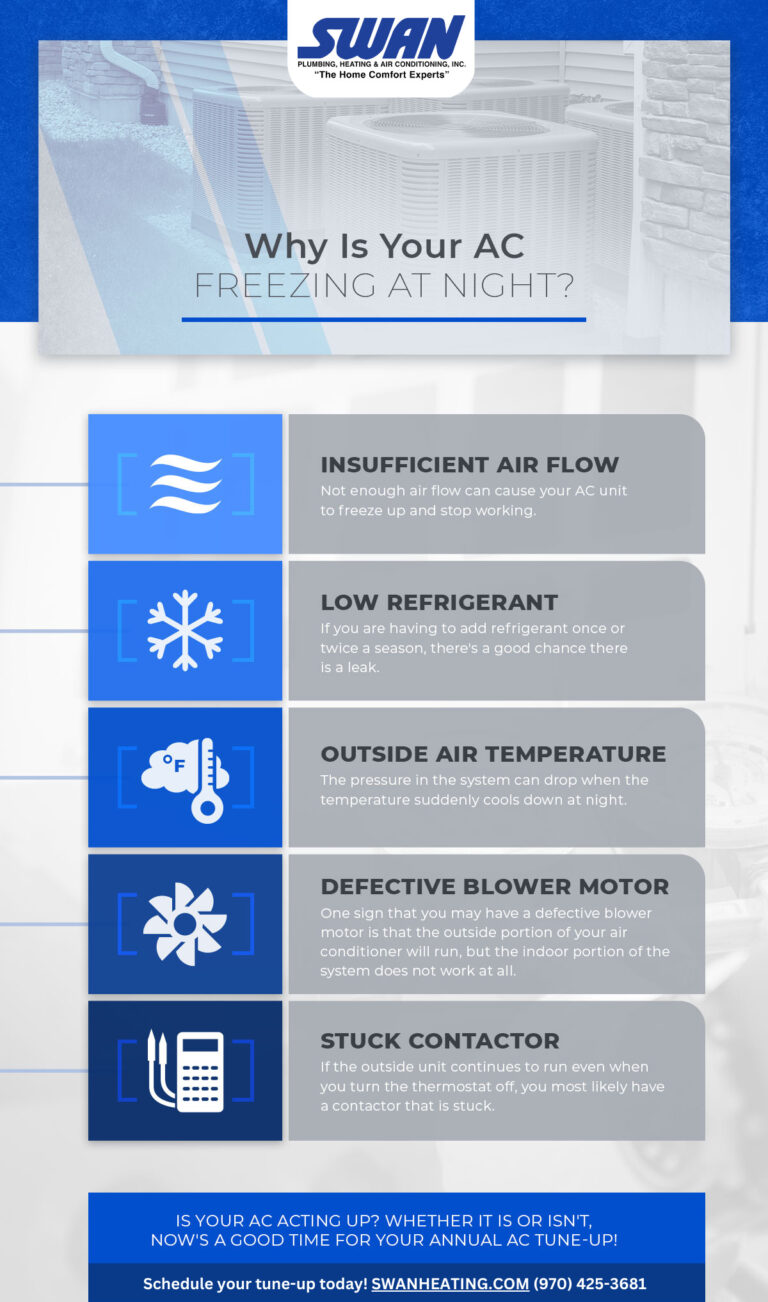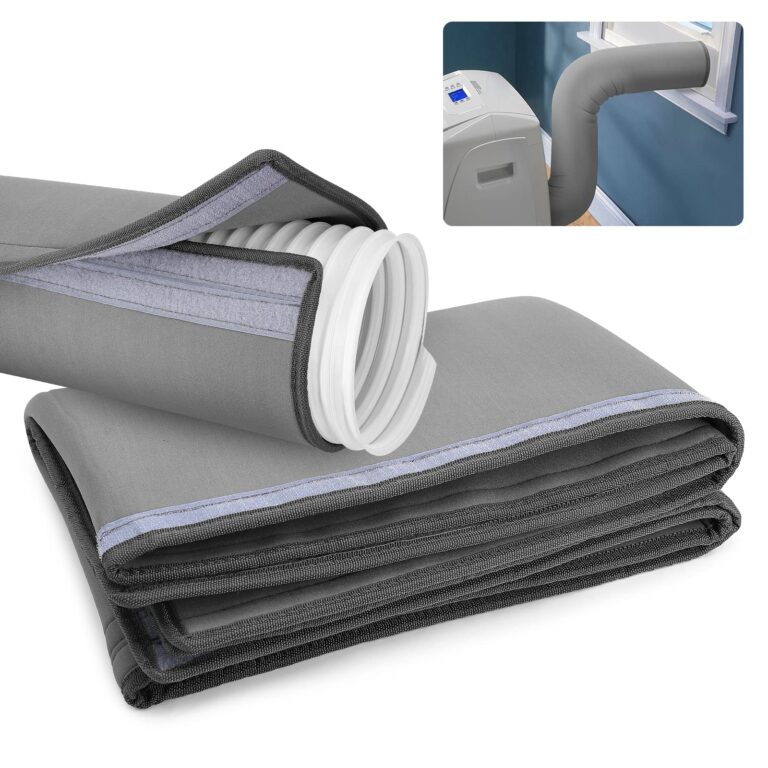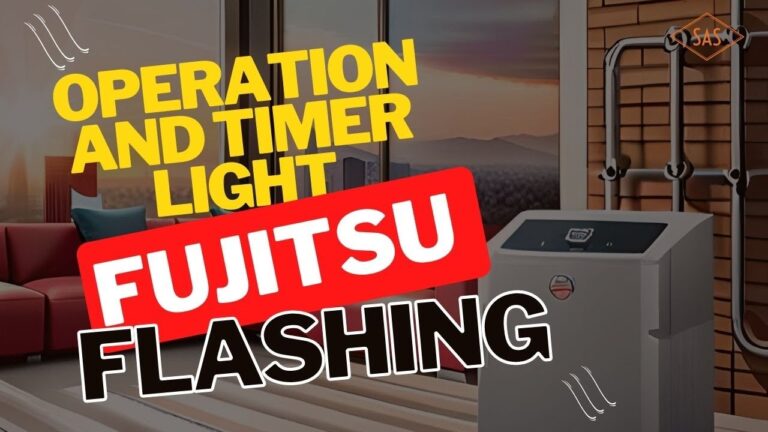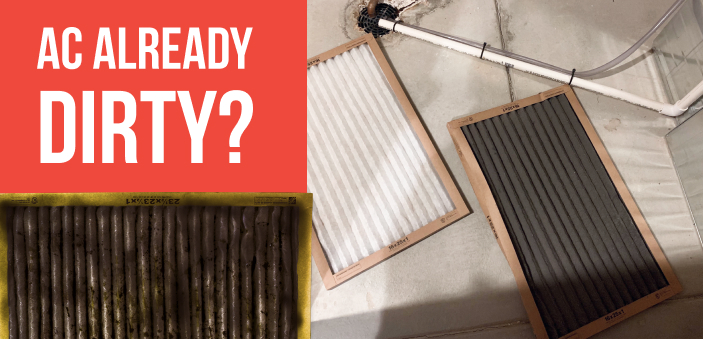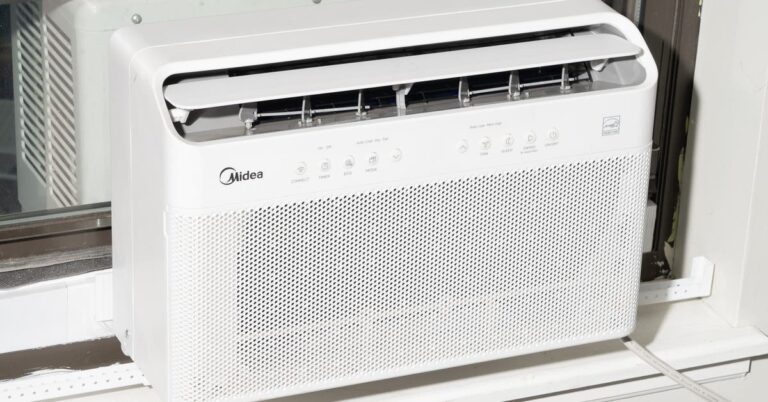How Do I Know If My AC Is Broken: Top Warning Signs
Your AC may be broken if it blows warm air or makes unusual noises. Poor airflow is another sign.
An air conditioner is essential for maintaining comfort during hot weather. Identifying early signs of a malfunction can save you from costly repairs. Warm air, strange sounds, and poor airflow usually indicate an issue. Regular maintenance can prevent breakdowns and extend your unit’s lifespan.
Dusty filters, low refrigerant, or a faulty thermostat might be the culprits. Addressing these problems promptly ensures your AC runs efficiently. Don’t ignore signs of trouble; acting quickly can avoid bigger problems. Ensure your home stays cool and comfortable by keeping your AC in top condition. Regular checks and timely repairs are crucial for optimal performance.
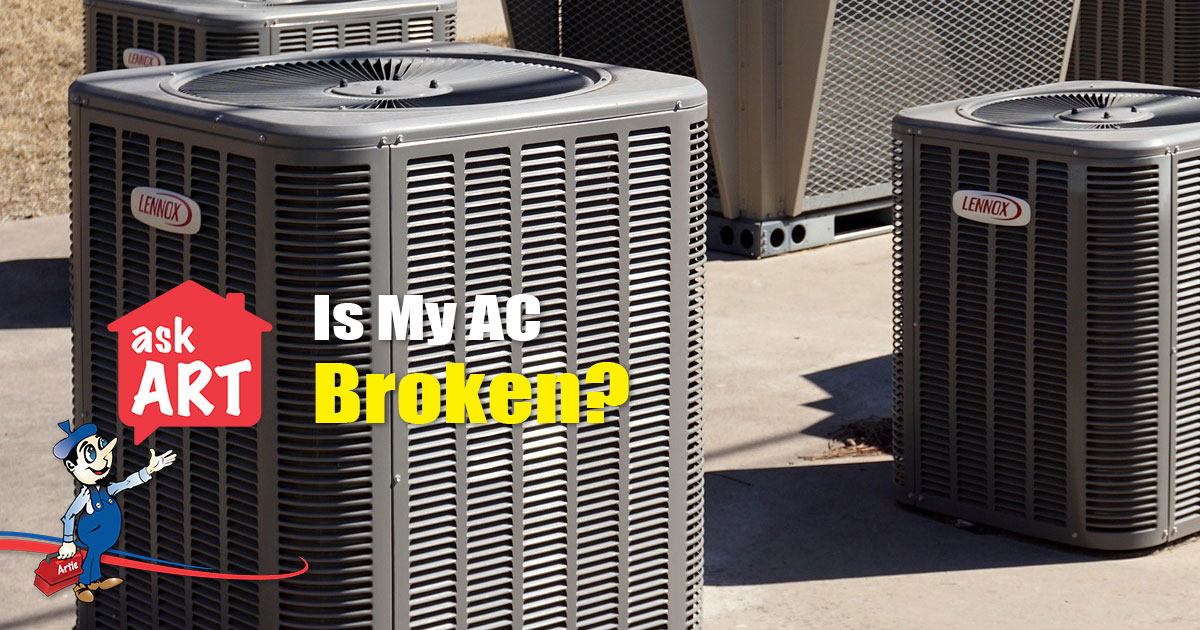
Credit: www.artplumbingandac.com
Unusual Noises
Is your AC making strange sounds? This could mean it’s broken. Pay attention to these unusual noises. They may reveal a problem.
Rattling Sounds
Rattling sounds are a common sign of an issue. They may come from loose parts or debris inside the unit.
Check these areas for rattling:
- Fan blades
- Motor
- Cover panels
If you hear rattling, turn off the AC. Call a technician to inspect it.
Squealing Or Grinding
Squealing or grinding noises often signal a serious problem. These sounds usually come from the motor or belt.
Possible causes of squealing or grinding:
- Worn-out belt
- Faulty motor bearings
Address these issues quickly. Prolonged use can cause more damage. Contact a professional to fix the problem.
Weak Airflow
One of the first signs of a broken AC is weak airflow. If the air conditioner is not blowing strong air, it may need repairs. This issue can affect the cooling of your home.
Blocked Vents
Blocked vents can cause weak airflow. Check if furniture or items are blocking the vents. Dust and debris can also clog the vents.
| Cause | Solution |
|---|---|
| Furniture blocking vents | Move furniture away from vents |
| Dust and debris | Clean the vents regularly |
Fan Problems
The fan is crucial for airflow. If the fan is broken, airflow will be weak. There are several causes of fan problems.
- Fan blades are dirty
- Fan motor is faulty
- Fan belt is broken
To fix these issues:
- Clean the fan blades
- Check and replace the fan motor
- Inspect and replace the fan belt
Warm Air
Feeling warm air from your AC can be frustrating. You expect cool air, not a sauna. Here’s how to identify if your AC is broken.
Thermostat Issues
Your thermostat controls your AC’s temperature. If it’s faulty, your AC blows warm air. Check if the thermostat is set to “cool.” If it is, but you still feel warm air, there might be a problem.
Use a digital thermostat. It’s more accurate than manual ones. Replace batteries regularly. If problems persist, consider replacing the thermostat.
Refrigerant Leaks
Refrigerant is crucial for cooling. Low refrigerant levels mean warm air. Leaks cause refrigerant levels to drop. Look for signs of leaks:
- Hissing sounds
- Frozen coils
- Water around the unit
If you suspect a leak, call a professional. They will fix the leak and recharge the refrigerant.
Frequent Cycles
Is your AC turning on and off too often? This is known as frequent cycles. It can be a sign your AC is broken. Here’s what you need to know about frequent cycles.
Short Cycling
Short cycling happens when your AC starts and stops quickly. This can happen within minutes. It’s a sign your AC is struggling. It may not cool your home properly. Short cycling can cause higher energy bills. It can also wear out your AC faster. Here are some common causes:
- Dirty air filters
- Low refrigerant levels
- Oversized AC unit
Check these issues to prevent short cycling.
Thermostat Malfunctions
A malfunctioning thermostat can cause frequent cycles. Your thermostat controls the AC’s operation. If it’s faulty, it may signal the AC to turn on and off too often. Common thermostat problems include:
| Problem | Effect |
|---|---|
| Dead batteries | Thermostat won’t work |
| Improper settings | Incorrect AC operation |
| Wiring issues | Unreliable signals |
Check your thermostat if your AC cycles frequently. Replace batteries or fix settings as needed.
High Humidity
High humidity inside your home can signal a broken AC. Your AC should manage humidity levels. If it doesn’t, something might be wrong.
Ac Functionality
Your AC works to cool and dehumidify your home. If you feel sticky or see condensation, your AC might be failing. Check if the air feels clammy. If yes, your AC is not working right. The cooling system might need repair or replacement.
Dehumidifier Needs
If your AC can’t handle the humidity, you might need a dehumidifier. Signs include mold, wet spots, and musty smells. A dehumidifier can help, but it’s a short-term fix. Long-term, you need your AC checked by a professional.
| Indicator | Description |
|---|---|
| Mold | Shows up in damp areas |
| Wet Spots | Appear on walls or floors |
| Musty Smells | Indicate excess moisture |
Regular maintenance can keep your AC in top shape. Always monitor your home’s humidity. If it feels too high, act quickly. Your comfort depends on it.
Water Leaks
Water leaks are a common sign that your AC might be broken. These leaks can cause serious damage to your home. Knowing the reasons behind these leaks is essential. Let’s dive into some common causes:
Drainage Problems
Drainage problems occur when the AC’s drain line gets clogged. A clogged drain line can cause water to back up. This results in water leaking from your AC unit. Regular maintenance can prevent these blockages. Ensure the drain line is clear and free from debris.
Condensation Issues
Condensation issues often arise with faulty AC units. When the unit does not cool properly, condensation builds up. This excess moisture can then leak from the unit. Check the condensation drain for any clogs or leaks. If unresolved, it can lead to significant water damage.
| Problem | Cause | Solution |
|---|---|---|
| Drainage Problems | Clogged drain line | Clear the line regularly |
| Condensation Issues | Faulty cooling | Check and fix condensation drain |
- Inspect your AC unit regularly for leaks.
- Ensure the drain line is clear.
- Check for excess condensation buildup.
- Schedule regular maintenance checks.
- Turn off your AC if you notice a leak.
- Check the drain line for clogs.
- Inspect the condensation drain for blockages.
- Call a professional if the issue persists.
Bad Odors
Experiencing bad odors from your AC unit can be alarming. These smells often signal underlying problems that need immediate attention. Knowing the type of odor can help diagnose the issue.
Mold Growth
A musty smell is often a sign of mold growth. Mold thrives in damp and humid environments, and your AC unit provides the perfect conditions. Mold can spread through the air ducts, affecting indoor air quality.
Here are some signs of mold growth:
- Musty odor
- Visible mold around vents
- Increased allergy symptoms
Addressing mold issues promptly is crucial for maintaining a healthy living environment.
Burning Smells
A burning smell indicates electrical problems or overheating components. This smell is a serious concern and requires immediate attention. Ignoring it could lead to significant damage or even a fire.
Common causes of burning smells include:
- Burnt wiring
- Overheating motor
- Malfunctioning capacitor
If you detect a burning smell, turn off the AC and contact a professional technician immediately.
Credit: www.reddit.com
High Energy Bills
Homeowners often notice that their AC unit is broken by observing high energy bills. An increase in your energy costs can be a tell-tale sign. This section will help you understand if your AC is the culprit.
Efficiency Loss
A broken AC unit works harder to cool your home. This causes an efficiency loss. You may notice the AC running longer than usual. Longer run times lead to higher energy consumption. This directly impacts your energy bills.
If your AC is old, it may also lose efficiency. Older units are less energy-efficient. Upgrading to a newer model can save you money. Check the SEER rating for better efficiency.
Maintenance Needs
Regular maintenance is crucial for your AC’s performance. Dirty filters and coils reduce efficiency. This forces the unit to work harder, increasing energy use.
Schedule regular check-ups for your AC. This includes cleaning filters and checking refrigerant levels. Proper maintenance can prevent high energy bills.
| Issue | Impact on Energy Bills |
|---|---|
| Dirty Filters | Increases energy use by 5-15% |
| Old Unit | Up to 30% higher energy bills |
| Inadequate Maintenance | Leads to higher energy consumption |
By addressing these issues, you can avoid the shock of high energy bills. Keeping your AC in good shape is essential. Don’t ignore the signs of a broken AC unit.
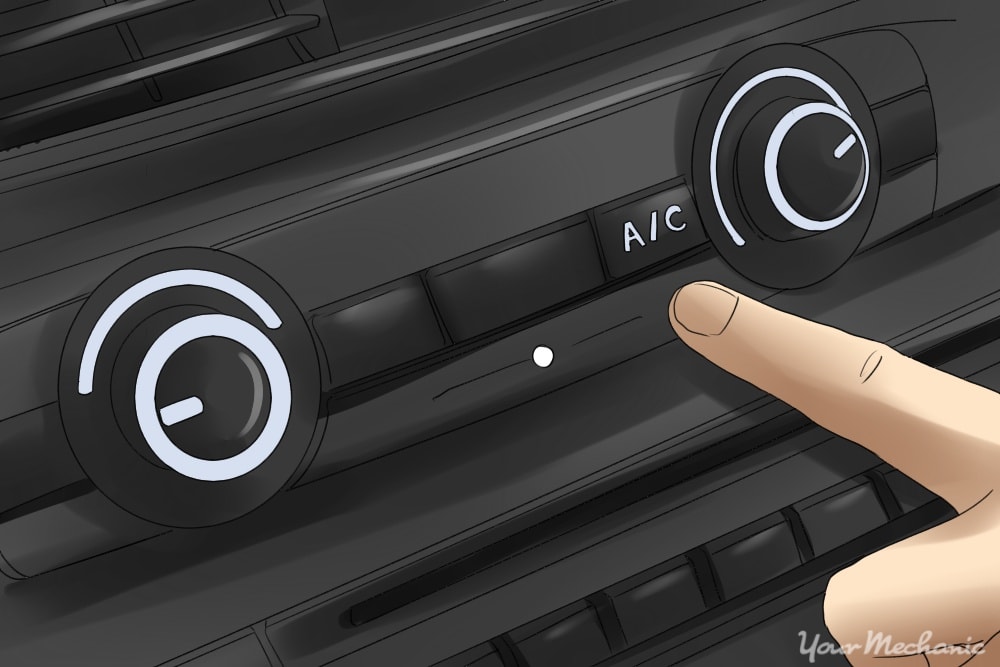
Credit: www.yourmechanic.com
Frequently Asked Questions
How Would I Know If My Ac Is Broken?
Your AC might be broken if it blows warm air, makes unusual noises, or doesn’t cool your space. Check for leaks or strange smells.
Is My Ac Broken Or Is It Just Hot Outside?
Check if your AC is blowing warm air, making unusual noises, or failing to cool rooms effectively. These signs suggest a problem.
Why Is My Ac Running But Not Cooling?
Your AC might not be cooling due to dirty filters, low refrigerant levels, or a faulty compressor. Check these issues.
Conclusion
Regular maintenance and attention to warning signs can prevent AC breakdowns. Always consult a professional if issues persist. Identifying problems early ensures comfort and efficiency. Keep your AC in top shape to enjoy a cool, worry-free home. Regular checks and timely repairs save money and extend your AC’s lifespan.

